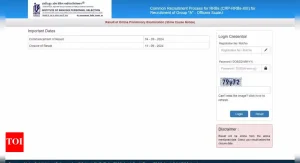Introduction
When asked about your biggest fear, choose one that shows personal growth and your ability to overcome challenges. For example, mention a fear like public speaking and how you’ve worked to improve it through workshops and practice.
Everyone has fears. When asked, “What’s your biggest fear?” it can be tricky to answer. This question often comes up in job interviews. It’s important to be honest but also smart about your response. This guide will help you tackle this question with confidence.
By reading this article, you’ll learn how to handle this tough question. Take these tips and apply them in your next interview. With practice, you’ll give a thoughtful and impressive answer. Don’t let this question catch you off guard!
This article explains why interviewers ask about your biggest fear. You’ll get strategies for framing your response effectively. Plus, you’ll see examples of answers that can inspire your own. Prepare yourself and turn this tricky question into an opportunity.
Deep Answers To What’s Your Biggest Fear

When faced with the question about your biggest fear, it’s essential to delve into answers that reflect genuine self-reflection. Deep answers go beyond superficial responses and provide insight into your character and values.
For instance, fear of failure is a common yet profound fear that many people experience. This fear can drive individuals to strive for excellence but can also hinder their willingness to take risks. Addressing this fear demonstrates your awareness of personal limitations and your commitment to overcoming them.
Another profound fear is the fear of the unknown. This fear is rooted in uncertainty and can affect decisions and actions. By acknowledging this fear, you reveal a vulnerability that is universally relatable. Discussing how you cope with this fear, such as embracing change or seeking new experiences, can highlight your resilience and adaptability.
How To Answer What Is Your Greatest Fear In An Interview
Answering this question in an interview requires a balance between honesty and professionalism. Begin by acknowledging the fear and then shift the focus to how you manage it. For example, if your biggest fear is public speaking, you could explain how you’ve taken steps to improve this skill, such as joining a public speaking club or practicing presentations regularly. This approach not only shows self-awareness but also demonstrates your proactive attitude towards personal development.
Another effective strategy is to frame your fear in a positive light. If you fear making mistakes, discuss how this fear drives you to be meticulous and detail-oriented in your work. Highlighting how your fear motivates you to strive for accuracy and quality can impress potential employers.
Understanding the Purpose Behind the Question
Understanding why someone might ask about your biggest fear is crucial to providing a thoughtful response. In an interview setting, the question often aims to assess your self-awareness, emotional intelligence, and problem-solving abilities. Employers want to see how you handle challenges and whether you have the resilience to overcome obstacles.
In personal conversations, the question may be a way to build trust and deepen connections. Sharing your fears can create a sense of vulnerability and openness, fostering stronger relationships. Recognizing the intent behind the question can help you tailor your answer to suit the context appropriately.
Strategies for Framing Your Response
When framing your response, consider these strategies to convey your message effectively:
- Be Honest but Positive: Acknowledge your fear but focus on how it has shaped your growth. For example, if you fear failure, explain how it has taught you perseverance and resilience.
- Show Personal Growth: Discuss steps you’ve taken to manage or overcome your fear. This shows that you are proactive and committed to self-improvement.
- Relate to the Role: In an interview, link your fear to the job you are applying for and how you’ve worked to mitigate its impact on your professional life.
- Keep It Brief: Provide a concise and clear answer without dwelling too long on the negative aspects of the fear.
- Use Specific Examples: Illustrate your points with specific examples from your life or career to make your response more relatable and memorable.
Examples of Thoughtful Answers
Here are some examples of how to answer the question thoughtfully:
Example 1: Fear of Failure
“My biggest fear is failure. This fear has been a significant motivator in my life, pushing me to strive for excellence in everything I do. To manage this fear, I set realistic goals and celebrate small achievements along the way. This approach has helped me maintain a positive outlook and stay motivated even when facing challenges.”
Example 2: Fear of Public Speaking
“I used to fear public speaking. To overcome this, I joined a local Toastmasters club and began practicing regularly. Now, while I still feel nervous before speaking, I have developed the skills and confidence to deliver effective presentations. This experience has taught me the value of stepping out of my comfort zone and embracing growth opportunities.”
Example 3: Fear of the Unknown

“I have a fear of the unknown, which can sometimes make it difficult for me to make decisions. To cope with this, I focus on gathering as much information as possible before making a choice. This strategy helps me feel more in control and confident in my decisions. It has also taught me to be adaptable and open to new experiences.”
How To Find Out What Your Biggest Fear Is
Identifying your biggest fear requires introspection and self-awareness. Here are some steps to help you uncover your deepest fears:
- Reflect on Past Experiences: Think about situations where you felt particularly anxious or stressed. What common themes or triggers can you identify?
- Journal Your Thoughts: Writing about your feelings and experiences can help you uncover patterns and gain insights into your fears.
- Seek Feedback: Talk to trusted friends or family members who can provide an outside perspective on your behaviors and fears.
- Consider Professional Help: If your fears are significantly impacting your life, a therapist or counselor can help you explore and address them.
- Mindfulness and Meditation: Practices like mindfulness and meditation can help you become more aware of your thoughts and emotions, leading to a deeper understanding of your fears.
Unforgettable Ways to Reply to “Happy Friendship Day”
Answers to Key Questions
1. Why do interviewers ask about your biggest fear?
Answer: Interviewers ask this question to assess your self-awareness, emotional intelligence, and how you handle challenges. They want to understand if you are capable of identifying your weaknesses and if you take proactive steps to manage or overcome them. Your response can also provide insight into your problem-solving abilities and how you might handle stress or adversity in the workplace.
2. How should I answer if my biggest fear is related to the job I’m applying for?
Answer: If your biggest fear is directly related to the job, it’s essential to show how you are actively working to overcome it. For example, if you fear public speaking and the job requires presentations, explain the steps you’ve taken to improve, such as attending workshops or practicing regularly. Highlight your progress and how you’ve turned this fear into a strength, demonstrating your commitment to personal and professional growth.
3. Can I mention a fear that seems trivial or less significant?
Answer: It’s best to choose a fear that reveals depth and self-awareness. While mentioning a trivial fear might seem safer, it can come across as insincere or lacking in introspection. Instead, select a fear that has genuinely impacted you and discuss how you manage it. This approach provides a more meaningful and relatable answer.
4. Is it okay to admit that I have not completely overcome my fear?
Answer: Yes, it is okay to admit that you are still working on overcoming your fear. Honesty is important, and acknowledging that you are a work in progress shows self-awareness and humility. What matters most is demonstrating that you are taking active steps to manage your fear and that you are committed to personal development.
5. How can I avoid sounding negative when talking about my fear?
Answer: To avoid sounding negative, focus on the positive aspects of your fear and how it has contributed to your growth. Frame your fear as a motivating factor that pushes you to improve. Discuss the strategies you use to cope with or overcome your fear, and highlight any successes or progress you’ve made. By emphasizing resilience and proactive behavior, you can provide a balanced and positive response.
Final Thoughts
Answering the question, “What’s your biggest fear?” can be daunting, but it also provides an opportunity to showcase your self-awareness and personal growth. By understanding the purpose behind the question and framing your response thoughtfully, you can turn a challenging query into a chance to highlight your strengths.
Remember to be honest, focus on the positive aspects of your fear, and provide specific examples to make your answer memorable. With these strategies, you can navigate this tricky question with confidence and grace.










